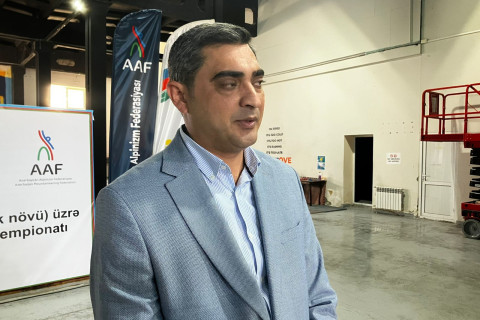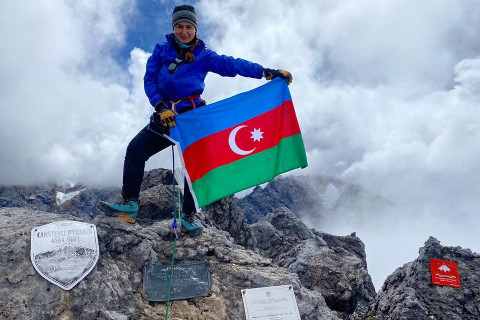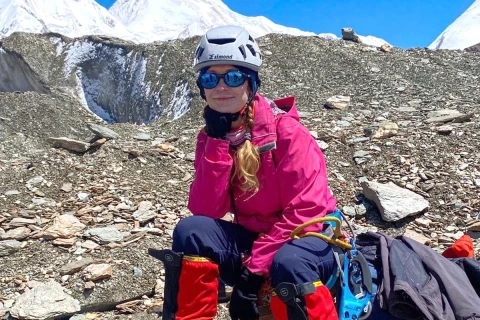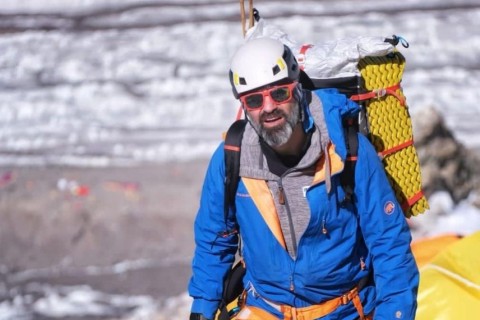Azerbaijani mountaineer Vafa Musayeva has successfully summited Mount Everest, completing a dream that she had pursued for eight years and prepared for intensively over the last two.
Idman.biz, citing Oxu.Az, reports that Musayeva described the emotional and physical challenges of her journey after returning home, saying:
“Everest is unlike any mountain I’ve ever climbed. It felt endless. The expedition took 35 days and was extremely difficult.”
Musayeva shared that she had carefully studied the risks and requirements beforehand and was mentally prepared. However, the ascent tested her limits. Near the summit, she began feeling unwell — which she initially thought was from nerves — but it turned out her oxygen tank was nearly empty.
“Waiting ten minutes to change the tank was frightening, but I overcame it and reached the top.”
She vividly recalled the emotional moment she reached the peak:
“Unintentionally, I found myself placing my forehead on Everest to thank it for accepting me. Mountains are sacred places. You don’t conquer them — they allow you to reach their summit.”
Throughout the climb, she witnessed the harsh reality of extreme altitudes:
“People around you suffer from fluid in their lungs, brain hemorrhages, or oxygen deficiency. Some are evacuated. Some die. And sometimes you have to walk past those who didn’t make it. You need incredible mental strength to continue.”
Musayeva didn’t stop at Everest. Despite warnings from her group leader and mountaineer Israfil Ashurlu, she chose to attempt a rare feat — summiting a second 8,000-meter peak immediately after Everest:
“I waited for better weather and successfully climbed Lhotse, too. It wasn’t easy — you have to use a jumar device continuously to ascend, and it demands strength and resilience.”
She reflected on how much inner endurance the climb required:
“While climbing Lhotse, I kept wondering how I’d make it back down. One climber died from mental exhaustion just after reaching Camp 4.”
Musayeva is also an educator and said she’s now taking time to process what the mountains have given and taken from her.
“I need to understand what I gained from this, what I left behind, and how I’ll use this experience to inspire others. Climbing, for me, is not just physical — it’s transformational.”
Her family was deeply supportive, despite the danger:
“My mom later told me that if she had known what Everest really was, she wouldn’t have let me go. But in the end, they all supported me.”
For now, Musayeva is pausing her future climbing plans:
“Everest was such a profound experience that I need time to absorb it before making new decisions.”
Her accomplishment places her among a rare group of climbers to summit both Everest and Lhotse back-to-back — a powerful statement of physical strength, mental resilience, and deep personal transformation.
Idman.biz













